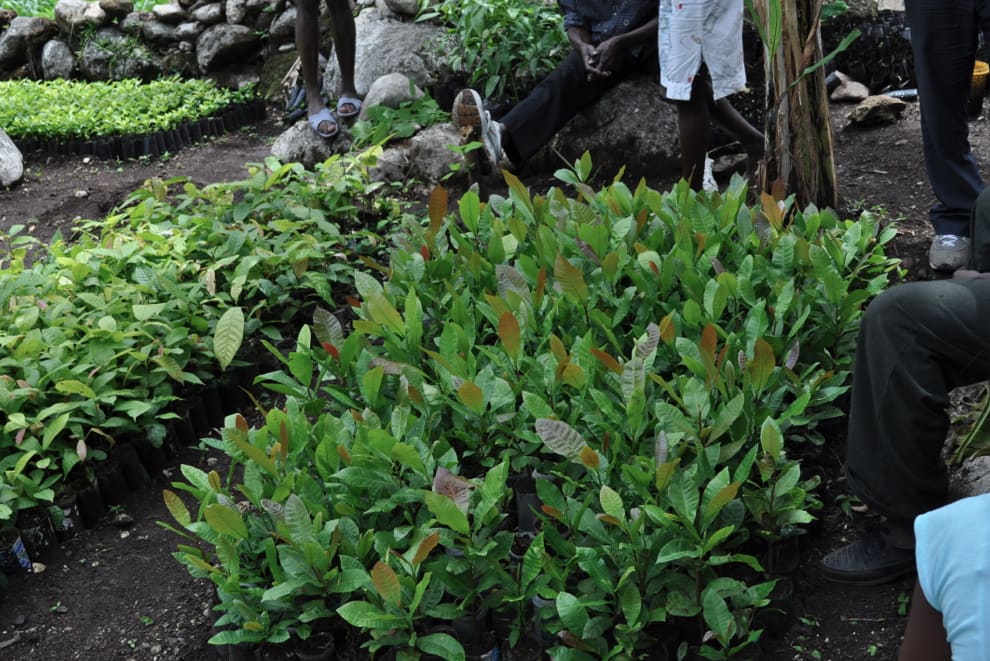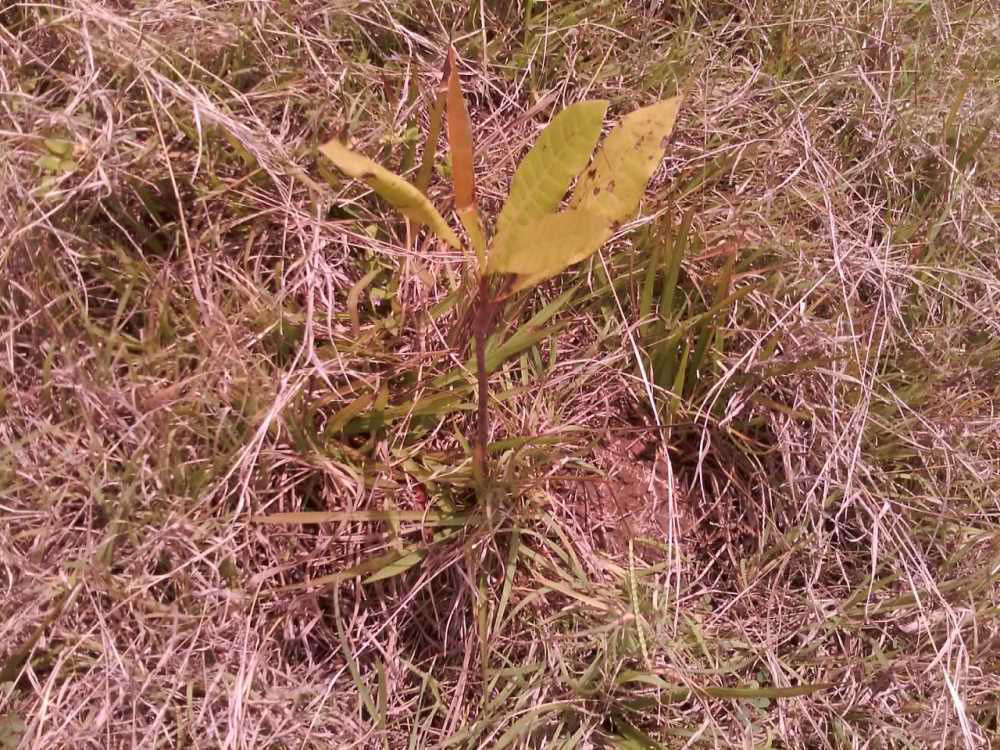ID: 888-8XL
ID: 888-8XL
Cashew
Anacardium occidentale
Photo
Haiti
16:12 - 25°C
My connections
My ID card
Who am I?
Date of birth
10/09/2014
Name
Cashew
Tree
Cashew
Where am I located?
Country
Haiti
Place of birth
Commune Chantal
Coordinates
18° 15′ 35.45″ N
73° 57′ 0.92″ W
/-73.9502567,18.2598467,0/500x333@2x?access_token=pk.eyJ1IjoidG9tbWFzb3NwZXJvbmkiLCJhIjoiY2tnOTE3eW12MDJqazMybXNzOWV1YjloOSJ9.wtGsuDU7XIKjcv2cq8CiXw&logo=false&attribution=false)
My Timeline
The important moments in your tree's life.
Seed
It all starts with a tiny seed, nice and warm in the soil.
Nursery
Your seedling is big enough to be welcomed into one of our nurseries, along with many others.
Planted
We’re here! Your tree has reached its new home: it’s been planted by a smallholder, who’ll take care of it for years to come.
Photo
Strike a pose! Now that it’s big enough, here’s a photo of your tree!
My Gallery
Nursery

Planted
/-73.9502567,18.2598467,0/500x333@2x?access_token=pk.eyJ1IjoidG9tbWFzb3NwZXJvbmkiLCJhIjoiY2tnOTE3eW12MDJqazMybXNzOWV1YjloOSJ9.wtGsuDU7XIKjcv2cq8CiXw&logo=false&attribution=false)
73° 57′ 0.92″ W
Photo

Curiosity about me
The important moments in your tree's life.
Let's start with introductions
The Cashew tree hails from Brazil and is a branchy evergreen. The fruit is composed of two parts - a fleshy one similar to apples, which is actually its “false” fruit, and the dry cashew nut that we are familiar with. Cashew cultivation aids the economy of small rural communities in Senegal and protects land plots from fires.
Meaning
Love
The word “cashew” derives from the Greek “kardia” and is thus considered one of the fruits associated to love.

How much CO2 I’ll absorb
My estimated CO2 absorption capacity is based on the first 10 years of my life*
Current absorption
- 300 kg
2014
0 kg
2024
-300 kg
* The tree will continue to absorb CO2 even after the tenth year. Therefore this is a prudent estimate.
How I am useful to local communities

Consumption and sales
Its fruits, seeds and/or leaves are used as food in the farmers' families or are sold on local markets.
My benefits
50%
Food Security
The trees will bear fruits, some that will be edible immediately and others that can become edible through processing, ensuring food resources over time.
100%
Economic development
The trees' fruits and the products derived from their transformation can be traded in local networks, offering income opportunities.
40%
CO₂ Absorption
During its life cycle, each tree will offset CO₂. The trees that you plant can offset your emissions.
60%
Environmental protection
The trees are planted in agroforestry systems that favor the virtuous interaction between the different species and their positive impact on the environment and on the land.